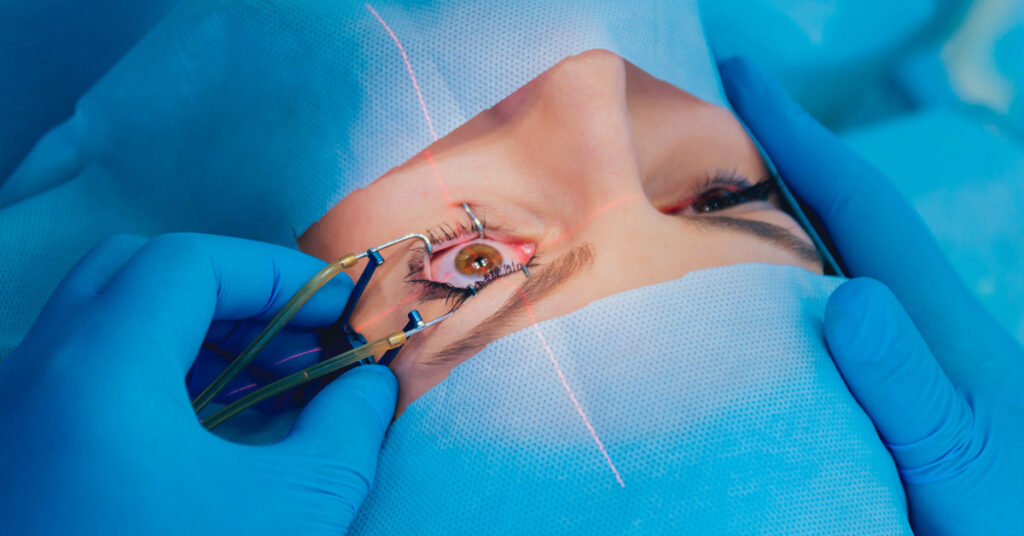Vision is one of our primary tools for experiencing our world and can affect every part of life – relationships, activities and work alike. Yet millions are affected by eye sight issues that severely reduce quality of life – contact lenses may offer temporary solutions while severe conditions often need professional ophthalmic attention from eye surgeons; in this article we explore their important roles and capabilities that help enhance vision correction efforts significantly.
What Is An Eye Surgeon?
Surgeons and ophthalmologists specialise in diagnosing and treating conditions, injuries, or issues related to the eyes. While optometrists typically specialise in prescription contact lenses or spectacles only, surgeons offer various surgical operations designed to correct vision. Eye surgeons possess immense training on eye anatomy as well as cutting-edge surgical approaches enabling them to treat even difficult visual disorders with precision.
When Should You See An Eye Surgeon?
Treatment options for more common vision conditions, like astigmatism, farsightedness and nearsightedness typically involve corrective lenses; more serious eye diseases require professional consultation from an eye surgeon. Here are a few reasons you might require surgical attention:
- Cataracts: A disorder where the natural lens of the eye becomes obscured, resulting in vision impairment. An eye surgeon performs cataract surgery, which involves removing the clouded lens and replacing it with an artificial one to restore vision.
- Glaucoma: Optic nerve disorders often arise as the result of elevated intraocular pressure. Left unchecked, they can result in blindness unless treated promptly by eye surgeons who offer laser procedures designed to lower intraocular pressure and preserve vision.
- Refractive Errors: Refractive errors may be corrected using refractive operations such as LASIK to treat astigmatism, hyperopia and myopia. Reshaping of cornea to increase light focus onto retina results in clearer vision.
- Diabetic Retinopathy: Diabetes mellitus patients may develop diabetic retinopathy, in which high blood sugar damages retinal blood vessels and causes vision loss. Surgeons can perform laser surgery or other therapies in order to stop further vision impairment and loss.
- Retinal Detachment: When the retina separates from the back of the eye, it is a medical emergency that, if left untreated, can result in permanent vision loss. In order to restore sight, eye surgeons must execute delicate procedures to reattach the retina.
The Role Of An Eye Surgeon In Vision Correction
Eye surgeons possessing the necessary tools and training can quickly diagnose and treat an array of eye conditions. Not only are their services capable of recovering sight; vision correction can improve general visual health as they provide long-lasting solutions tailored specifically for each of their patient’s individual requirements.
Advanced Surgical Procedures
Today’s methods for eye surgery have never been less invasive or more accurate. Modern technology such as laser-assisted surgery provide patients with greater accuracy and quicker healing times compared to its predecessors; millions have found such procedures like LASIK and cataract removal extremely successful in changing their lives forever.
Preventing Vision Loss
Many eye conditions have the potential to cause irreversible vision loss if left untreated. In order to detect these diseases early and provide prompt care, an eye surgeon’s knowledge is essential. To preserve a patient’s vision, for example, glaucoma can be treated surgically in its early stages to avoid irreversible damage to the optic nerve.
Customised Care
Eye doctors are aware of the fact that each patient has different vision requirements. They provide customised treatment programs based on your unique illness and way of life. To guarantee the greatest results, an eye surgeon customises their approach, whether they are choosing the best kind of lens implant for cataract surgery or suggesting the most suitable refractive surgery.
The Impact Of Vision Correction Surgery
Vision correction surgery frequently has life-altering effects. More independence, confidence, and a higher quality of life are common complaints from patients. Only skilled surgical care can deliver the life-changing opportunity to read properly, drive without glasses, or see the faces of loved ones.
Because of sophisticated procedures like LASIK, patients can often completely do away with the necessity for glasses or contact lenses. Surgery can not only restore lost eyesight but also stop further degeneration in people with cataracts or more severe eye conditions.
Conclusion
You should always consult an eye surgeon when dealing with complicated vision issues since your eyes are valuable. With solutions that go beyond corrective lenses, they can diagnose and treat a wide range of disorders because of their vast professional training and experience. An eye surgeon can help you reach better vision and enhance your general quality of life using cutting-edge surgical methods and individualised treatment. To restore and improve your eyesight, you must first contact an eye surgeon if you have been diagnosed with an eye ailment or are having vision problems.




